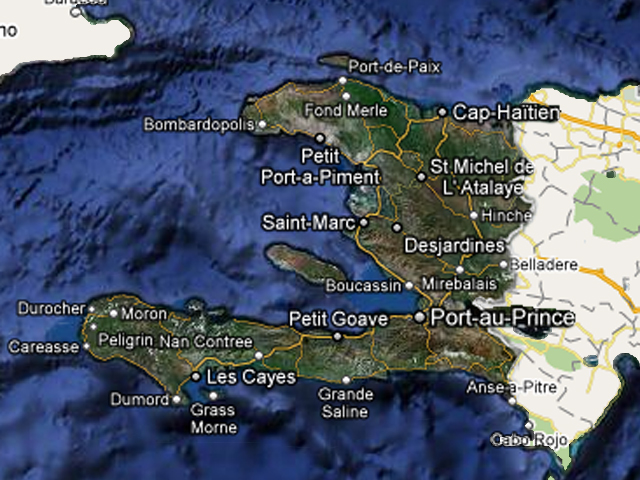African Swine Fever Confirmed in Haiti
Backyard Farm in Haiti Reports 234 Cases of African Swine Fever Among Herd
LINCOLN, Neb. (DTN) -- African swine fever has spread to Haiti, as the World Organization for Animal Health (OIE) confirmed an outbreak on Monday in the very-most southern city of Anse-a-Pitre, bordering the Dominican Republic.
The OIE report is the first indication the virus may have spread from the Dominican Republic where it was identified in the Western Hemisphere for the first time in decades. According to the OIE, this is the first reported case of African swine fever in Haiti since 1984.
The report indicates there were 234 cases of ASF found among a backyard herd of 2,500 animals in Haiti. The OIE report indicates the origin of the infection is either "unknown or inconclusive."
USDA's Animal Health Inspection Service announced this week it had shut off the flow of pork products from Puerto Rico and the U.S. Virgin Islands while the U.S. government sets up a system to prevent the spread of the virus to the mainland U.S.
The OIE said the Haitians are taking several steps in response, including surveillance, quarantine and screening additional animals in the region. Officials are preparing to take additional steps of establishing protection zones, controlling movement of pigs inside the country and other measures.
At the end of last week, USDA suspended the movement of all live swine, swine germplasm, swine products and swine byproducts from Puerto Rico and the U.S. Virgin Islands to the mainland U.S. in an effort to prevent the spread of African swine fever.
In a news release at the end of last week, USDA said it issued the federal order as part of establishing an animal disease protection zone in Puerto Rico and the Virgin Islands. The order was given to allow USDA to establish "sufficient mitigations" against ASF.
P[L1] D[0x0] M[300x250] OOP[F] ADUNIT[] T[]
So far, ASF has not been detected in Puerto Rico or the U.S. Virgin Islands.
The Animal and Plant Health Inspection Service on July 28 confirmed ASF in the Dominican Republic. On Aug. 26, APHIS announced plans to establish a foreign animal disease protection zone around Puerto Rico and the U.S. Virgin Islands.
APHIS said that once the protection zone was established, the agency would be able to restrict movement of live swine and products out of the protection zone, conduct surveillance within the zone, conduct a public-education campaign on biosecurity on farms, prohibit the movement of live swine and products outside of the region and to contact report clinical cases to authorities.
A USDA official said earlier in August the U.S. was trying to accelerate efforts to eradicate feral hogs in Puerto Rico and to expand testing efforts in Haiti and the Dominican Republic.
The OIE provides for the establishment of a protection zone within an area free of disease, USDA said, as a temporary measure in response to an increased risk from a neighboring country or zone of different animal health status.
ASF has no human health implications, but the disease is deadly to swine and spreads rapidly through a herd.
ASF led to rapid slaughter of millions of hogs in China in late 2018 and early 2019, cutting the world's largest swine herd down as much as 40% and leading China to basically rebuild its entire swine industry in the process. The ripple effect led to a high volume of global pork exports to China, including from the U.S., in response.
Chinese officials said in 2020 the country had gotten a handle on the disease, but USDA in April 2020 cited that underreporting of cases was now a problem in China as producers in the country were reluctant to report any new outbreaks because of fears of economic losses.
Germany was originally hit with ASF in its feral hog population last year, which effectively cut off exports from the country. German officials reported ASF had been found in at least three farms, affecting domestic pigs.
U.S. and Canadian officials have since been concerned about the potential risks for ASF landing in North America and the potential devastation it would cause. The risks are high, considering the U.S. exported a record $7.7 billion in pork in 2020 and is largely keeping close pace with that sale volume so far in 2021. The risk of a single case could effectively close U.S. export markets.
Read more on DTN:
"USDA Suspends Pork Products Movement," https://www.dtnpf.com/…
Todd Neeley can be reached at todd.neeley@dtn.com
Follow him on Twitter @DTNeeley
(c) Copyright 2021 DTN, LLC. All rights reserved.






